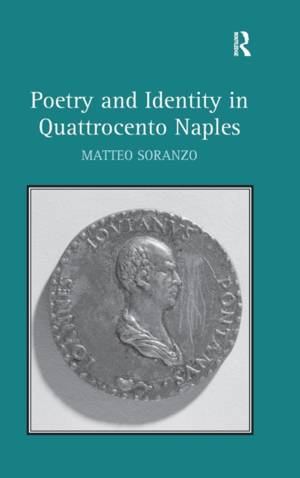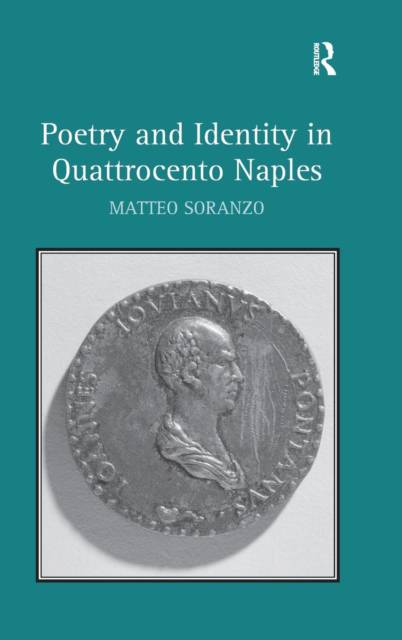
- Afhalen na 1 uur in een winkel met voorraad
- Gratis thuislevering in België vanaf € 30
- Ruim aanbod met 7 miljoen producten
- Afhalen na 1 uur in een winkel met voorraad
- Gratis thuislevering in België vanaf € 30
- Ruim aanbod met 7 miljoen producten
Zoeken
€ 305,45
+ 610 punten
Omschrijving
Poetry and Identity in Quattrocento Naples approaches poems as acts of cultural identity and investigates how a group of authors used poetry to develop a poetic style, while also displaying their position toward the culture of others. Starting from an analysis of Giovanni Pontano's Parthenopeus and De amore coniugali, followed by a discussion of Jacopo Sannazaro's Arcadia, Matteo Soranzo links the genesis and themes of these texts to the social, political and intellectual vicissitudes of Naples under the domination of Kings Alfonso and Ferrante. Delving further into Pontano's literary and astrological production, Soranzo illustrates the consolidation and eventual dispersion of this author's legacy by looking at the symbolic value attached to his masterpiece Urania, and at the genesis of Sannazaro's De partu Virginis. Poetic works written in neo-Latin and the vernacular during the Aragonese domination, in this way, are examined not only as literary texts, but also as the building blocks of their authors' careers.
Specificaties
Betrokkenen
- Auteur(s):
- Uitgeverij:
Inhoud
- Aantal bladzijden:
- 184
- Taal:
- Engels
Eigenschappen
- Productcode (EAN):
- 9781472413550
- Verschijningsdatum:
- 5/03/2014
- Uitvoering:
- Hardcover
- Formaat:
- Genaaid
- Afmetingen:
- 156 mm x 234 mm
- Gewicht:
- 435 g

Alleen bij Standaard Boekhandel
+ 610 punten op je klantenkaart van Standaard Boekhandel
Beoordelingen
We publiceren alleen reviews die voldoen aan de voorwaarden voor reviews. Bekijk onze voorwaarden voor reviews.








